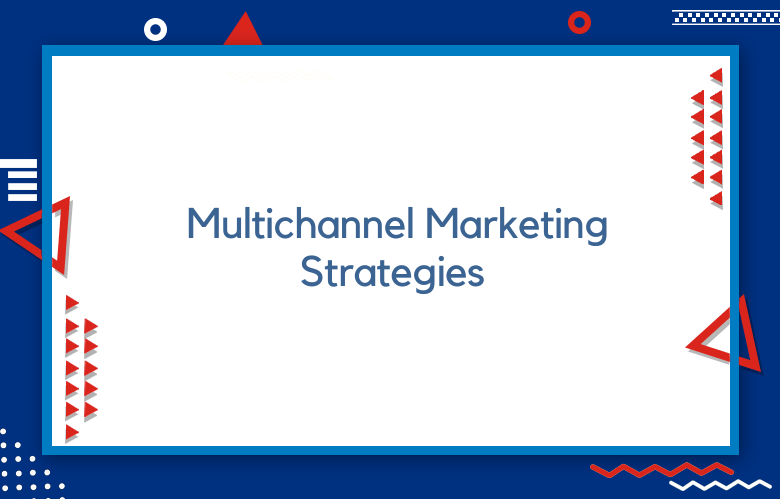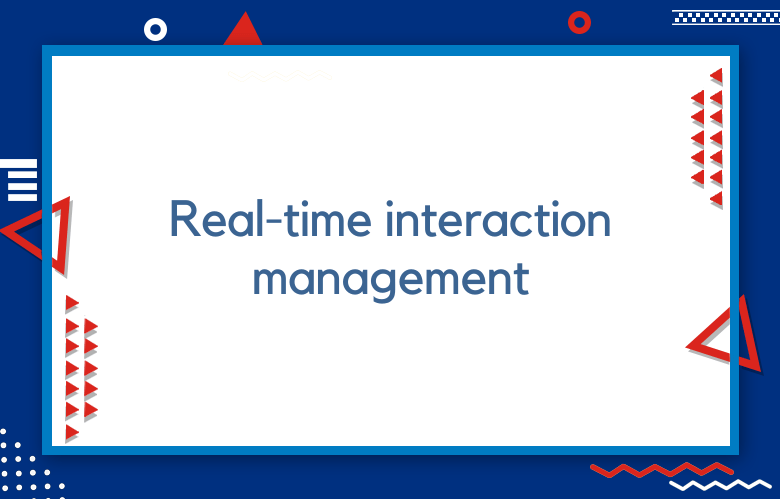Multichannel Marketing Strategies to Reach More Customers?

In a world where the average person owns three internet-connected devices, businesses must use multichannel marketing strategies to reach as many potential customers as possible.
Thankfully, there are various ways to use multichannel marketing strategies to reach more people. Let’s look at a few of the most popular methods.
Multichannel marketing is a strategy for reaching customers using multiple channels, such as TV, radio, email, print media, and digital platforms.
By using various methods of communication to target prospective customers, businesses can ensure they’re getting a wider audience.
We’ll cover the different types of multichannel marketing strategies and how you can use them to increase your visibility and reach more customers.
The Importance of Multichannel Marketing for Your Business?
Increased Reach
One of the primary benefits of multichannel marketing is that it allows businesses to reach a wider audience.
By using multiple channels, businesses can connect with potential customers who may not reach through traditional marketing methods.
Companies can use different channels to target specific demographics or geographic areas.
Greater Engagement
Multichannel marketing also allows businesses to engage with potential customers more personally.
Businesses can start conversations with potential customers through social media and email and build relationships with them.
This is important as it increases brand loyalty and customer retention.
More Effective Messaging
Another benefit of multichannel marketing is that it allows businesses to create more effective messaging.
Companies can tailor their messages to specific demographics and target them more effectively using multiple channels.
Businesses can use different channels to test additional messages and determine the most effective ones.
Increased ROI
Multichannel marketing also has a higher ROI than traditional marketing methods.
Businesses can reach a larger audience and engage with potential customers more personally, increasing sales and conversions.
Businesses can track their campaigns’ performance more effectively, allowing them to optimize their campaigns for the best results.
Greater Flexibility:
Another advantage of multichannel marketing is that it offers greater flexibility than traditional marketing methods.
With traditional marketing, businesses must commit to one channel, such as television or print advertising.
However, with multichannel marketing, companies can choose which channels to use and change their strategy whenever they feel another track would be more effective.
Improved Customer Insights
Multichannel marketing also provides businesses with improved customer insights.
By tracking the performance of their campaigns across multiple channels, companies can better understand who their target market is and what interests them.
This information can then be used to create more targeted and effective marketing campaigns in the future.
Are you creating a Successful Multichannel Marketing Plan: tips and best practices?
Define Your Goals
Defining your goal is the first step in creating a successful multichannel marketing plan. What are you hoping to gain with your marketing efforts? Do you want to spread brand awareness, drive traffic to your website, or generate leads?
Once you clearly understand your goals, you can develop a plan to help you achieve them.
Identify Your Target Audience
The next step is to identify your targetted audience. Who are you trying to get with your marketing? What are their needs and interests?
Once you understand your target audience well, you can develop content and messages that resonate with them.
Research Your Channels
Once you have defined your goals and targetted audience, it’s time to start researching your channels. Which channel will be most effective for reaching your target audience?
What type of content will work best on each channel? Research the various options before making any decisions.
Develop Your Content
Once you understand which channels you’ll use, developing your content is time. What type of content will best achieve your goals? Will you use infographics, videos, or anything else?
Ensure your content is high-quality and well-researched before moving on to the next step.
Create Your Campaigns
Now that you have all the pieces, it’s time to start creating your campaigns. Each campaign should have a specific goal, such as increasing brand awareness or generating leads.
Once you have created your campaigns, you can implement them across your channels.
Monitor Your Progress
Monitoring their progress and performance is essential as you implement your campaigns.
Are they achieving the desired results? If not, make adjustments as necessary.
Track essential metrics such as website traffic and conversion rates to gauge your efforts’ success over time.
Make Adjustments as Needed
As with any marketing effort, things will rarely go according to plan. Be prepared to make adjustments based on your campaigns’ results.
If something needs to be fixed, feel free to try something new. Trial and error is the only way to find what works best.
Evaluate Your Results
Once you have implemented your campaigns and made the necessary adjustments, it’s time to evaluate the results.
Did you achieve your goals? If not, why not? Use what you’ve learned from this experience to improve your future marketing efforts.
The Role of Personalization in Multichannel Marketing: Engaging with Customers Across Platforms?
The modern consumer is constantly inundated with marketing messages, making personalization a key element in multichannel marketing.
Personalizing the customer experience across various platforms can help marketers build relationships with customers and cultivate loyalty in ways that are impossible to achieve through traditional methods.
Companies can create highly customized customer experiences across multiple channels by leveraging consumer preferences and behavior data.
Personalized multichannel marketing involves delivering appropriate content about products or services to target audiences at the right place and time.
This level of precision requires marketers to focus on three key areas: understanding the customer journey, crafting relevant messages, and using the right technologies.
Leveraging Social Media in Multichannel Marketing: best practices and case studies?
Leveraging social media in multichannel marketing is increasingly important in today’s digital landscape.
As more people turn to their phones and tablets for entertainment and news, businesses must stay ahead by leveraging new platforms and opportunities.
Using a multichannel approach, brands can reach larger audiences, increase engagement with existing customers, and build lasting relationships with potential customers.
Red Bull
Red Bull used Instagram stories featuring interesting visual content related to their brand while also focusing on user-generated content from ambassadors who promoted their product with enthusiasm,
Including lifestyle influencers like professional athletes and adventurers who were featured in the stories;
This allowed them to reach new audiences and engage more deeply with existing ones.
Coca-Cola
The soda giant leveraged Facebook Live events featuring music performances from famous artists like Bruno Mars to bring unique experiences directly into customer homes;
This was highly successful as customer engagement skyrocketed during the streams, increasing brand awareness and sales growth.
KFC
The fast food chain ran an online campaign entitled “Finger-Lickin’ Good Friday,” which involved creating funny GIFs associated with their product along with encouraging followers to post their GIFs;
This allowed KFC to increase audience engagement while providing an entertaining experience and leading up positive ROI over time.
Are you integrating Email Marketing into Your Multichannel Strategy: insights and recommendations?
Integrating email marketing into your multichannel strategy can provide several benefits, from improved customer engagement to increased conversions.
An email is a powerful tool for reaching customers, allowing you to build trust and loyalty while driving revenue.
Here are some insights and recommendations on how you can use email marketing as a way of an effective multichannel strategy:
Leverage personalization
Personalization allows you to tailor emails and other communications to show customers that their needs are being considered.
You can use personalized messages that address the user’s interests and preferences or send tailored offers or discounts depending on past purchases or behavior.
Utilize segmentation:
Segmentation allows marketers to target specific groups of people with different messages based on the data they have collected about them.
This helps ensure that each user gets the most relevant content, which can increase conversions and engagement rates.
Make sure emails are mobile-friendly:
Mobile devices account for more than half of all email opens, so any emails that must be sent look good on both desktop and mobile devices alike.
Responsive design, readable fonts, and clear calls to action help ensure that your emails look great regardless of screen size.
Track results
Tracking results is critical to understanding what works in your email marketing efforts, so be sure to analyze the data collected carefully to make informed decisions in the future.
Consider using A/B testing to determine which versions of certain emails perform better than others with different audiences or demographics.
By integrating email marketing into your multichannel strategy, you can use its various capabilities to reach more people, increase engagement levels, boost conversion rates, and ultimately gain more revenue for your business over time.
With these insights and recommendations in mind, you can create a successful email marketing campaign that will yield positive results for your business in the long run!
The benefits of Multichannel Marketing for E-commerce Businesses: A comprehensive guide?
Reach More Customers
One of the primary benefits of multichannel marketing is that it allows businesses to reach more customers.
Companies can target a broader range of consumers using multiple channels, increasing sales and revenue.
Multichannel marketing can help businesses reach new markets to which they may still need access.
Build Brand Awareness
Another benefit of multichannel marketing is that it can help businesses to build brand awareness. Brand awareness is the degree to which consumers are familiar with a particular brand or product.
By using multiple channels, companies can reach a more significant number of people, which can ultimately lead to increased brand awareness and recognition.
Increase Customer Engagement
Multichannel marketing can also help businesses to increase customer engagement. Customer engagement refers to the level of interaction that a customer has with a brand or product.
Companies can provide customers with a more immersive and interactive experience by using multiple channels, leading to increased engagement and loyalty.
Generate More Leads
Multichannel marketing can also be used to generate more leads for a business. A charge is a potential customer who has expressed interest in a product or service.
By using multiple channels, companies can reach a more significant number of people, ultimately leading to more leads and sales.
Improve Customer Retention
Another benefit of multichannel marketing is that it can help businesses to improve customer retention. Customer retention refers to the percentage of customers who continue to do business with a company over time.
Businesses can use multiple channels to keep customers engaged and interested in their products or services, increasing retention rates.
Reduce Marketing Costs
Multichannel marketing can also help businesses to reduce their marketing costs. Marketing costs are the expenses associated with promoting and selling products or services.
By using multiple channels, companies can reach more consumers with less money, reducing marketing costs and increasing profits.
Boost Sales and Revenue
One of the ultimate goals of any business is to boost sales and revenue.
Multichannel marketing can help businesses to achieve this goal by reaching more consumers and generating more leads.
Multichannel marketing can help companies increase customer engagement and retention, leading to increased sales and revenue.
Maximizing ROI with Multichannel Marketing: Key Metrics to Measure and Analyze?
Any multichannel marketing program aims to maximize Return on Investment (ROI). When done correctly, this type of marketing allows brands to reach larger audiences and optimize the use of their resources.
ROI is measured not only in monetary terms but also in terms of customer engagement, brand awareness, and loyalty.
Key metrics should be taken into account to measure and analyze the success of a multichannel marketing program.
The first metric that should be considered is Cost Per Acquisition (CPA). This refers to how much it costs to acquire a new customer or retain an existing one through a specific channel.
By comparing CPA for different media, marketers can determine which channel is the most cost-effective for acquisition.
Click Through Rate (CTR) is another critical metric for evaluating multichannel marketing performance. This metric measures the percentage of people who click on a link or ad from an external source.
The Role of Data-Driven Decision-Making in Multichannel Marketing: insights and Examples?
Data-driven decision-making is an essential element of any successful multichannel marketing strategy.
Marketers can gain valuable insights into consumer behavior and preferences by applying data analytics to track customer journeys, optimizing campaigns and driving more conversions.
Data collected from multiple channels can be used to identify key trends and correlations that marketers can act on, enabling them to make better decisions on targeting, product positioning, budgeting, and other aspects of the marketing mix.
Data analytics also reveal how customers engage with different channels – such as social media, email, SMS, and display ads – so marketers can tailor their strategies accordingly.
For example, if a particular promotion or message is performing better on one channel than another,
This data will enable marketers to focus more resources on the more successful channel while revising or eliminating activities on the one that is not driving results.
This data can also indicate which channels are most effective for particular customer segments so resources can be allocated sensibly.
Trends and Predictions in Multichannel Marketing: What to Expect in the Future?
The continued rise of e-commerce
It’s no secret that e-commerce has risen in recent years, and it is expected to continue.
More and more consumers are shopping online, and businesses are responding by increasing their online presence.
To stay competitive, businesses must ensure they have a robust online presence and that their website is optimized for conversion.
The growth of social media
Social media has become one of the most important channels for marketing, and this trend is expected to continue.
More and more businesses are using social media to reach their target audiences, and the platforms are becoming more sophisticated.
To stay ahead of the competition, companies will need to make sure they are using social media effectively and that they are using the latest features and tools.
The rise of mobile marketing
Mobile marketing is expected to become even more important with the continued growth of smartphones and tablets.
Consumers are increasingly using their mobile devices to access the internet, and businesses need to make sure they are reaching these consumers.
Mobile marketing can be done in various ways, such as through responsive design, mobile apps, or SMS marketing.
The growth of content marketing
Content marketing has become one of the most effective ways to reach consumers, and this trend is expected to continue.
Businesses that create high-quality content relevant to their target audience are more likely to succeed than those that don’t.
To create successful content marketing campaigns, businesses must invest in a content strategy and plan for how they will create and distribute content.
The importance of data
Data is becoming increasingly crucial for businesses to understand their target audiences better.
Businesses can gain insights into their target audience and what they want by collecting data from various sources, such as website analytics, social media analytics, or customer surveys.
This information can create more effective marketing campaigns tailored to the target audience’s needs.
The rise of artificial intelligence
Artificial intelligence (AI) is expected to significantly impact marketing in the future as it becomes more sophisticated.
AI can be used for various tasks, such as personalization, targeting, and creating content.
As AI becomes more advanced, it will become increasingly crucial for businesses to use it to stay ahead of the competition.
Conclusion
Multichannel marketing strategies are an effective way for small businesses to reach more potential customers quickly and efficiently without spending too much money upfront.
By understanding who your target audience is and utilizing both traditional and digital platforms effectively—and measuring the results along the way—
You will find yourself well on your way toward increasing customer engagement and loyalty over time!
Multichannel marketing is invaluable for businesses looking to reach more customers and increase their ROI.
With its broad reach across multiple platforms and its ability to provide personalized customer experiences,
We wonder why many companies use multichannel strategies when promoting their products or services.
As such, all business owners should consider leveraging the power of multichannel marketing to maximize their online success.
Call: +91 9848321284
Email: [email protected]



